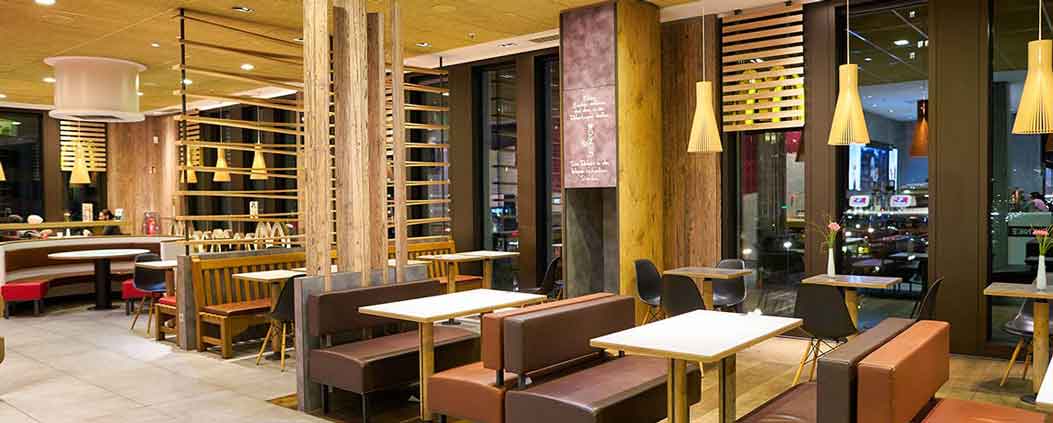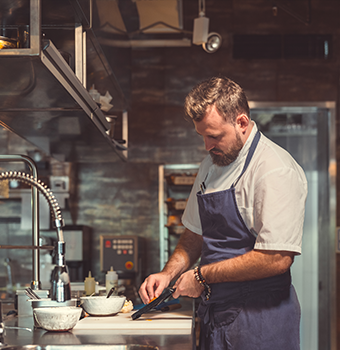We sat down for a virtual Q&A with Larry Kruguer, former COO of Wingstop Inc., to discuss global restaurant expansion, technology and emerging trends in operations.
Larry served as Chief Operating Officer and EVP for Wingstop Inc., where he led global operations, supply chain, training support and international business initiatives. He also served as VP of International Joint Ventures and Key Markets at The Wendy’s Company., where he led overseas efforts in marketing, business development, real estate and finance.
Today, he leads Floresta Franchise Consulting and serves as a key advisor to Floresta Partners. Additionally, he created KR Ventures, where he serves as Managing Partner/Angel Investor/Advisor in early-stage concepts in the technology, retail and sports-related sectors.
Read the full Q&A with Larry below.
What were some of your career milestones in the restaurant industry?
I entered the industry in 2007 with Wendy’s as head of marketing for its international division. My broad international business background allowed me to re-start the company’s business development efforts. It had not entered a new market in almost a decade and had lost major traction to the other major burger brands. A major milestone was successfully entering major markets and territories it had backed out of prior to my arrival or had never entered. I am most proud of re-entering Argentina and launching Brazil and Chile in South America, re-entering eastern Europe and Japan, and creating a unique menu/retail experience in India.
At Wingstop, I am most proud of being part of the executive team that took the business post-IPO to a very successful run and expansion. My initial role in overseeing the international business included some great milestones, such as building a global team with multi-brand experience and helping to expand into Europe, Latin America and Asia. As COO, the opportunity to oversee the roll-out and expansion of our delivery business, which was completed before the COVID outbreak, has been a major factor in the brand’s continued success despite the pandemic.
What were some of your most memorable experiences at Wingstop and Wendy’s?
Expanding on the above, the opportunity to explore new parts of the world and find ways to grow the respective brands by leveraging their core DNA and understanding the need to adapt to local customs/habits as well as competitive pressures really tested one’s ability to self-evaluate and strategize.
At Wendy’s, developing Wendy’s Café, a more fast-casual experience, differentiated us from other major burger brands and advanced the company’s footprint.
At Wingstop, the opportunity to roll-out delivery overseas helped us refine operational processes when we were ready to launch U.S. efforts. Our willingness to test a more casual dining/sports experience in Mexico allowed the business to flourish. It became the No. 1 market outside the U.S., nearing 100 outlets in 10 years.
What has been the proudest moment in your career?
I am not sure there is one moment. Obviously reaching the level of COO for a highly successful publicly traded company is a proud accomplishment. Yet, I am most proud of the ability over my career to translate my experiences across different stages of a business, multiple industries and challenges into success. I have been asked many times how I was able to cross over multiple sectors and functional roles. My answer has always been if you are always customer-focused, listen to those around you and understand the common threads of success, no matter the industry, you can translate these into successful building blocks.
Who has inspired you as a leader?
I do not have one person who Inspired me. Rather I have had the opportunity to interface with many senior leaders—both good and bad—over my long career, and I have learned from all of them. Early in my career, I was inspired by Stephen Covey’s book, “7 Habits of Highly Effective People.” I was drawn to the ideas of putting yourself in other people’s shoes, treating others as you would want to be treated and creating win-win opportunities. The lessons became the foundation of my leadership/team-player style. People seek an inspirational leader who is consistent, stable and willing to tell it like it is, yet is respectful of others and can balance the highs and lows. An organization puts its faith in a leader who is transparent, consistent and loyal.
To what do you attribute to your success in operations?
I did not grow up in operations; my core background was marketing. I attribute my success to surrounding myself with great seasoned operators and providing them with a customer-focused mentality. We often measure KPIs or processes that have little to do with the end customer. We can be too inward-focused. Success at the end of the day is consistently delivering a fantastic experience to the end customer, which requires operational proficiency. At Wendy’s, for the longest time, it was all about speed of service at the drive-thru. Everything else was a distant second. Our inside dining experience deteriorated; the dining areas became old and tired. The emphasis on speed even outweighed making little mistakes in ensuring order accuracy. There is nothing worse than driving away and noticing your fries are missing. Balancing speed with 100% accuracy with having a great, clean and attractive asset is critical in ensuring customers enjoy their experience and want to come back, time and time again.
Tell us about Floresta Partners and your current role?
Floresta is one of the ventures I am focused on now that I have stepped down from the big corporate world. My partners and I are involved in helping earlier-stage concepts, primarily in F&B, define a clear strategy and growth opportunity. We specialize in defining their development path, asset plan and offering a global perspective if they are a U.S. concept or a foreign concept looking to enter the U.S. market. We have also found a niche in supporting key suppliers/service support providers to restaurants by innovating ways to accelerate their offering and help push the industry towards continued advancement.
As the restaurant industry continues to struggle amid the pandemic, what advice do you have for restaurant leaders?
Be customer-focused. Learn from the challenges we are facing and understand how you can best adapt your business. Most importantly, come out stronger on the other end of this pandemic. Rethink your asset or service formats. Delivery and take-out/drive-thru have been critical during this period, and it’s safe to assume the trend will continue. Maximizing these channels today will have major implications for ongoing success. Are there opportunities to lower your asset investments or improve labor efficiency to better deal with future downturns? Learning from the challenges and keeping the end customer in mind will separate those who succeed from those who may be unable to overcome the current situation.
Headed into 2021, what emerging trends do you think we will continue to see in restaurant operations?
Delivery, smaller asset formats, more narrow menus with fewer SKUs, improved use of labor and ghost kitchens.
What are some tips or tools that restaurant operators can adopt post-pandemic?
Look at brands that have sustained or shown significant growth during the pandemic. They have followed the lessons I have described above, but there may be other tidbits to learn. There is nothing wrong with learning from others’ success.
You are very active in early-stage technology ventures. How important is technology for restaurant and retail operations?
It is very important. In addition to my Floresta efforts, I have invested in early-stage technology companies that are not F&B focused. The common trait is by being customer-focused, the continued improvements that a company can achieve through advances in technology are significant. Technology can significantly improve internal operating procedures that benefit the end customers and deliver new channels for your customers to interface with you. The pandemic requires social distancing, but technology has helped people find ways to communicate, interface and exchange services. Without technology imagine the repercussions on our economy and way of life.
Where do you see technology headed in the next 5 years for the restaurant industry?
I see the involvement of technology accelerating in the next 5 years. With labor costs increasing and the post-pandemic challenges, leverage technology to improve processes, efficiencies and efforts. Technology will be critical in profitability margins and improved service.
Do you have any books or podcasts to recommend?
Actually, my recommendation is to spend more time in your restaurants. Spend time speaking to customers and front-line personnel. Visit other concepts that are growing and expanding or have received great reviews. Patron them and see what they are doing and how their best practices can be adapted to your business. Do not spend too much time behind a desk.
What are some of your interests outside of the business?
I love to spend quality time with my family. I have four children who span in ages from 28 all the way down to 7, so the breadth of conversation, interests and opinions vary quite a bit – keeps me on my toes to say the least! I love to travel globally; COVID has not helped this year and looking forward to starting again later in 2021. Lastly, I love all sports—both as an active participant and as an observer; nothing is better than spending time outside in the fresh air and keeping both mind and body in shape.



